Almost every successful business is built around the management of customer relationships. However, maintaining those relationships is easier said than done. Since the business market is filled with an almost infinite number of tools, companies become trapped in overly general, overly complicated or simply unsuitable systems. For those organisations that strive for high levels of operational performance, greater customer engagement, and optimization of organisational processes, the development of a custom CRM solution turns into the solution of choice.
Bespoke solutions of CRMs are not anymore a luxury that enterprise can afford – they are increasingly becoming a must for organisations that seek new sources and types of competitive advantages. If you opt for a custom CRM development, you can get an efficient tool that will develop with the firm’s growth, complement the existing organisational structure, and demonstrate tangible performance.
What is Custom CRM Development?
Basically, custom CRM development is the process of developing a CRM system which will be optimal for the functioning of your company. Custom RFAs, on the other hand, are built directly or redesigned based on your existing, desired, and implemented work processes, values, and customer outreach mechanisms.
Such an approach guarantees every tool, function or a feature you find revolves around the intended goals, thereby saving you from being frustrated with a number of unnecessary tools, and the ensuing workarounds often associated with the conventional generic systems.
Why Businesses Need Custom CRM Development Solutions
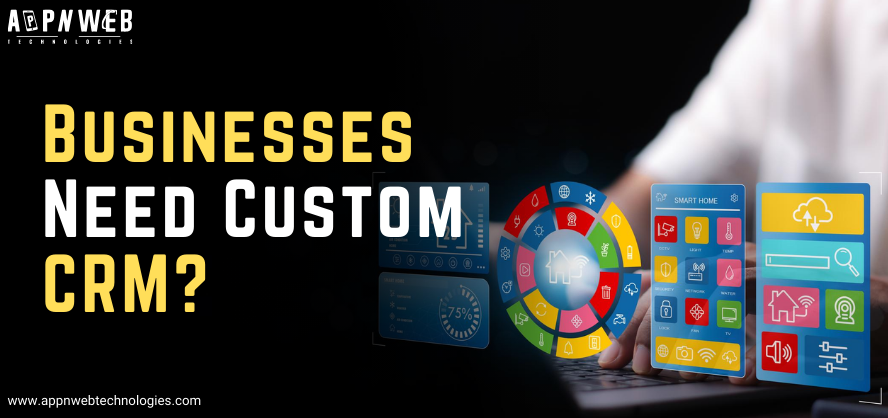
Traditional CRMs as it were are functional, but they stand with specific limitations built into them. Some may provide you with tens or hundreds of features which, in fact, you will never utilise, while others can fail to support the level of integration your business requires. This is where custom CRM development shine, offering a host of benefits:
1. Tailored Features
Most CRMs are developed specific to the needs of your business. Each one of the features is designed to address a purpose that is within the context of your functioning.
2. Seamless Integration
No matter the tools for marketing, ERP systems, or communication platforms you use, it is always possible to implement a custom CRM development that seamlessly integrates with the tools you use. This does away with the many compartments that are personation productivity.
3. Scalability
However, as your business evolves, so do the requirements of the business. Rather than using a standard template, it is possible to have a CRM system developed for a company, which will be adjusted to reflect your company’s needs as it grows.
4. Enhanced Security
The hacking incidents can be very catastrophic especially for ventures that have to deal with prospective customers’ data. Needless to say, tailored refreshing CRMs let you integrate strong inherent security measures that offer confidence.
Elements to Integrate into a Custom CRM System
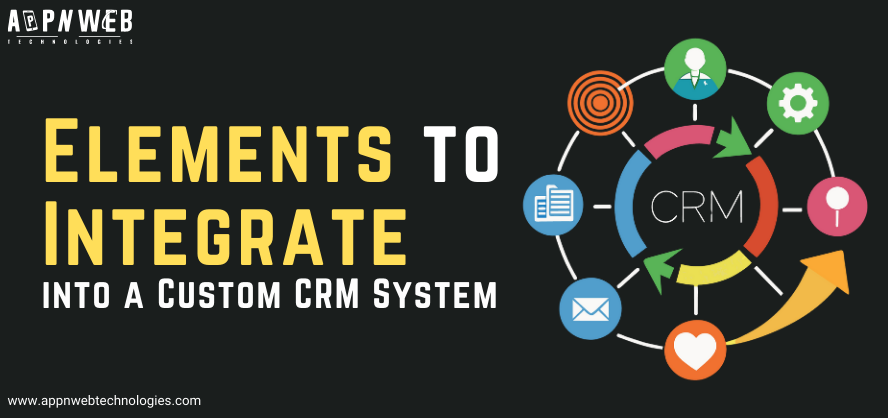
While beginning the complex and lengthy process of availing of custom CRM development, some parameters should be valued higher in terms of usability and performance. Some must-have elements include:
1. Personalised Dashboards
Ensure consumers avail an immediate almost real-time info on which metrics and tasks to perform next.
2. Automation
Generic tasks may range from follow-up emails, to revisiting the lead generation process.
Real-Time Analytics: Share the observations combined with actual and up-to-date real-time reports and analysis.
3. Omnichannel Communication
Capture and coordinate communication in email, instant messaging, social networking and other.
4. Integration Tools
Charts of accounts in QuickBooks must be compatible with the other high-priority systems, for example, accounting, inventory, or marketing.
Custom CRM Development vs Off-the-Shelf Solutions: A Cost Analysis
However, it is often said that cost is the biggest determinant, especially when organisations are choosing between a custom and an out-of-the-shelf product. Even though the CPs associated with custom CRM development are higher initially due to development and installation which are comparable to the costs of the software, the benefits far outweigh the costs in the long run.
General CRMs have lower cost at the onset but as a result of licensing and lack of settings, having to work with features that don’t fit the organisation can be costly in the long run. SMEs, which are more focused on long term of business, reduced wastage and costs make customised CRMs a sound business investment.
The Development Process: Building a Custom CRM
Developing a successful custom CRM development requires strategy and effort from all stakeholders and can be divided into five steps. Here’s a breakdown of the process:
Step 1: Needs Assessment
In the first process, it is recommended to evaluate the business processes and define the bottlenecks. Establish well understood goals for the CRM.
Step 2: Collaborative Design
Coordinate with the developers as well as stakeholders in order to incorporate a system that will effectively respond to goals of the organisation. This phase consists of the concept of wire and prototyping.
Step 3: Testing and Feedback
Test early and often. End-user feedback can be utilised to fine-tune the features and the process employed in the system.
Step 4: Implementation
Implement CRM within your firm and the right training process for employees in the firm should be followed.
Step 5: Continuous Improvement
With the growth of business, CRM too should grow. Resource of frequent updates and new features.
Conclusion
Custom CRM development is not just a technological solution, it is a business decision to set your company for success. Customising a CRM with the specific needs of any company in mind not only leads to an opportunity to gain a competitive edge but also improves organisational efficiency in how the customer relationships are managed on the firm’s side and enhances the value of those relationships from the client’s perspective.
Thanks for reading!
Have a project in mind? Schedule a free consultation today.
Get StartedNeed Expert Development Services?
You have spent quite some time on this page while seeking a suitable technology partner.


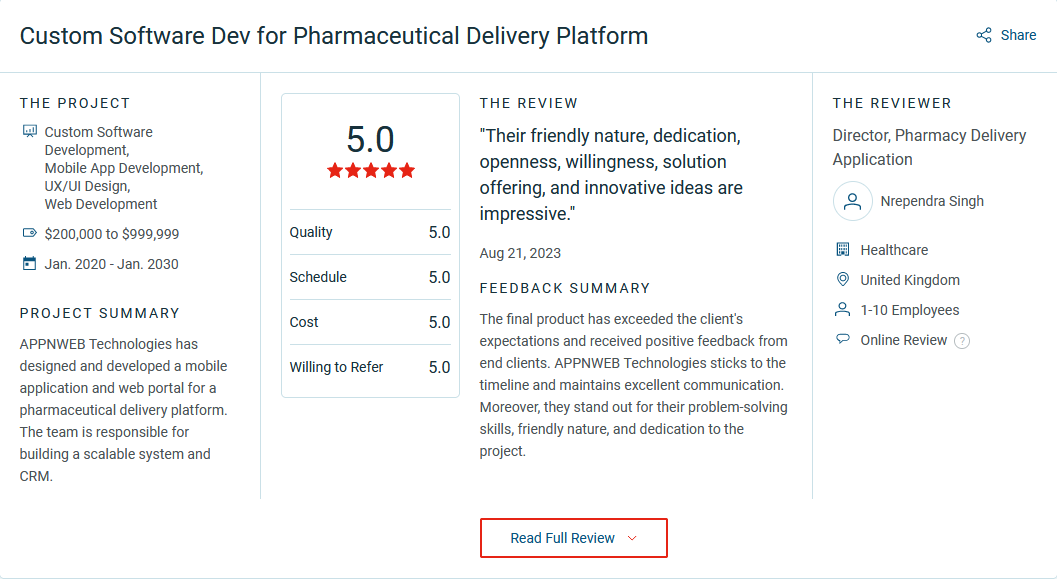
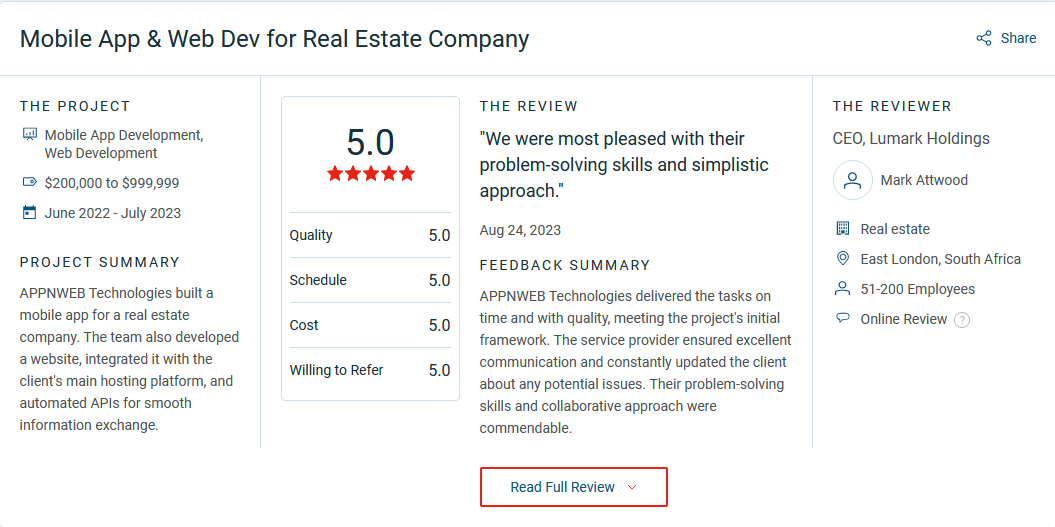
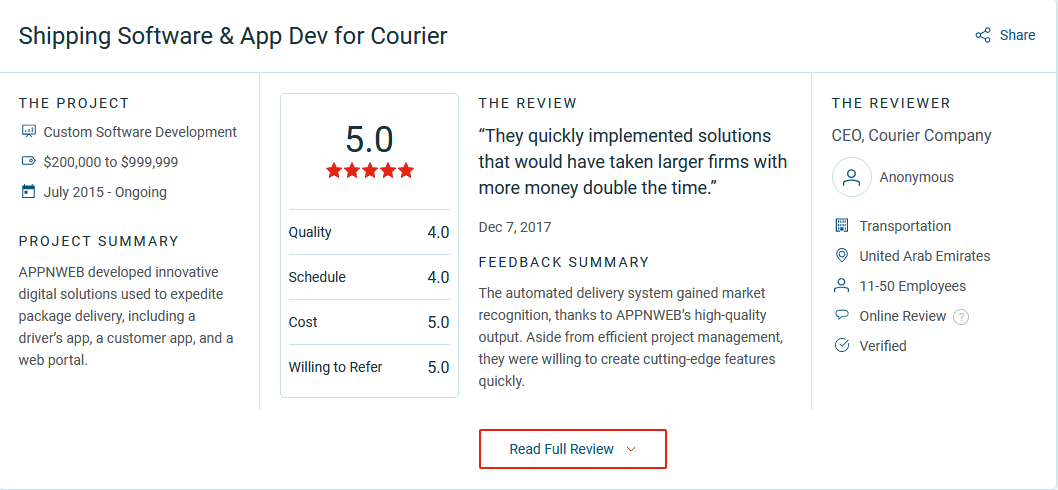
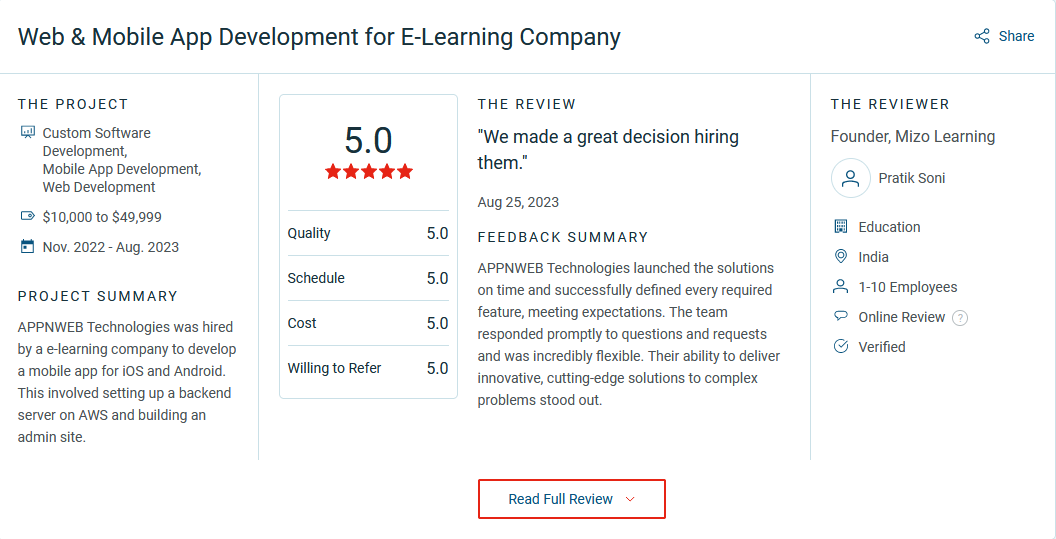
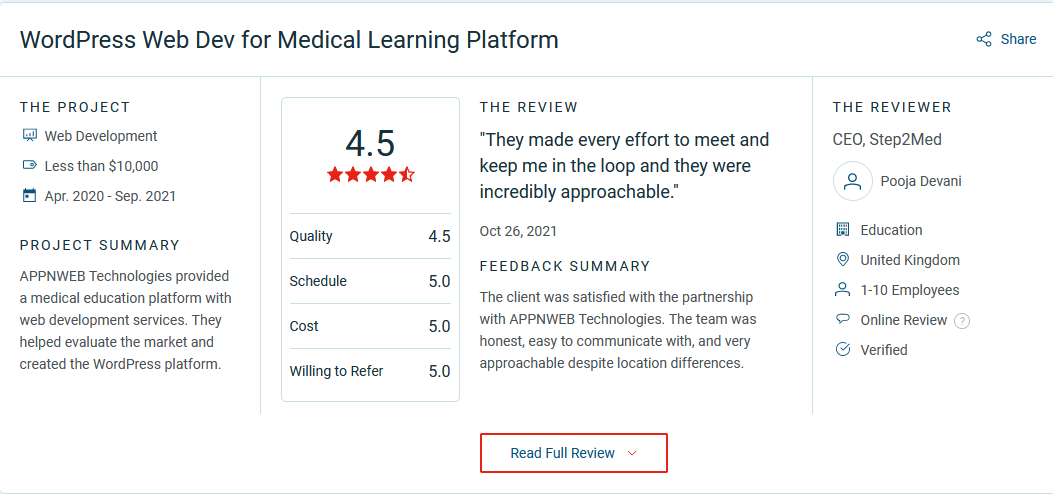












 Hire Craft CMS Developers
Hire Craft CMS Developers
 Hire Flutter Developers
Hire Flutter Developers
 Hire Blockchain Developer
Hire Blockchain Developer
 Hire WordPress Developer
Hire WordPress Developer
 Hire Magento Developer
Hire Magento Developer
 Hire Laravel Developers
Hire Laravel Developers
 Hire SaaS Developers
Hire SaaS Developers
 Hire Shopify Developer
Hire Shopify Developer
 Hire the Best Android Developer
Hire the Best Android Developer
 Hire PHP Developer
Hire PHP Developer
 Hire the Top 3% of Java Developers
Hire the Top 3% of Java Developers
 Hire Fully Vetted Angular Developers
Hire Fully Vetted Angular Developers
 Hire ReactJS Developers in India
Hire ReactJS Developers in India
 Hire iOS Developers in India
Hire iOS Developers in India
 Hire React Native Developers
Hire React Native Developers
 Hire Python Developers
Hire Python Developers



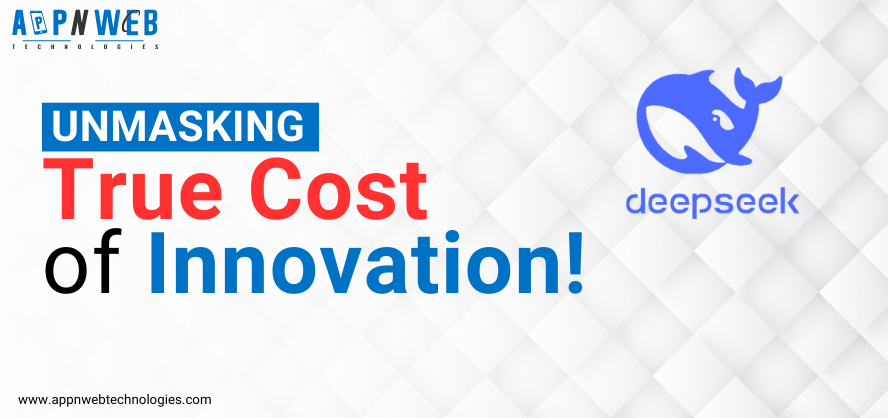





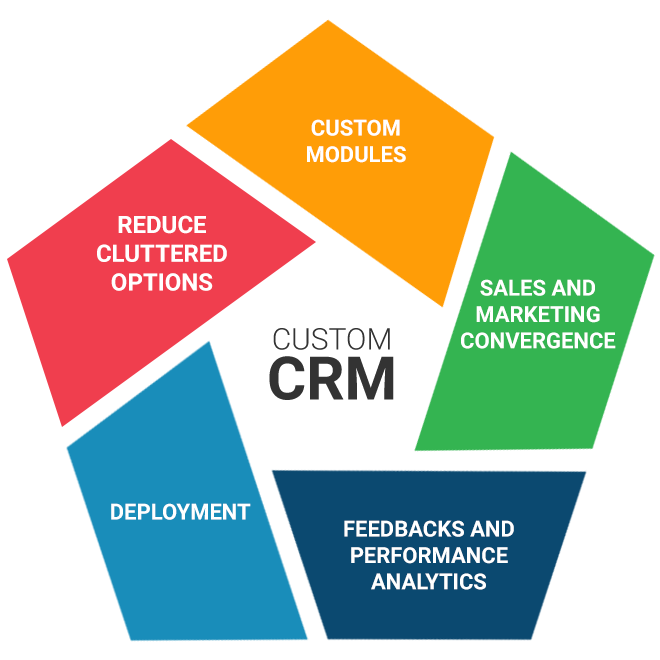








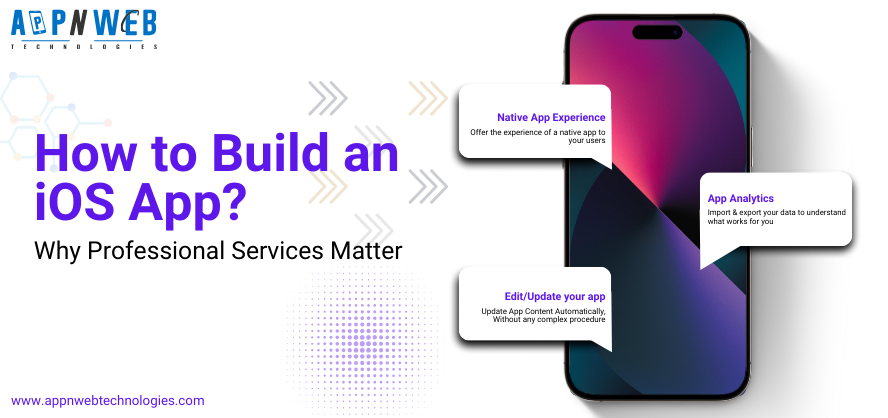


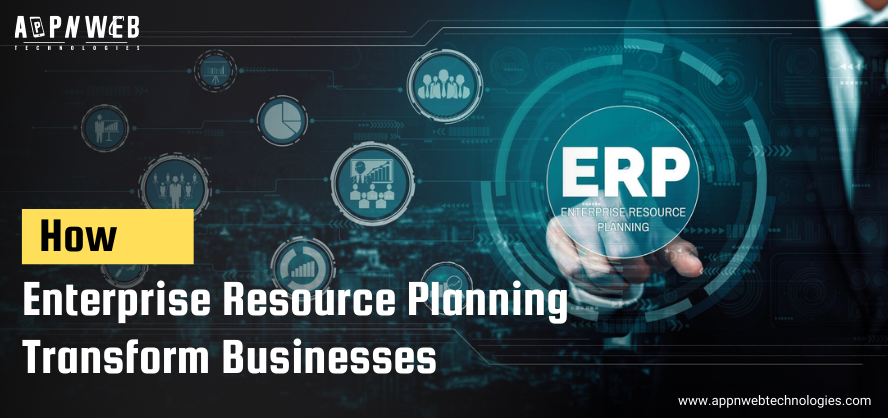


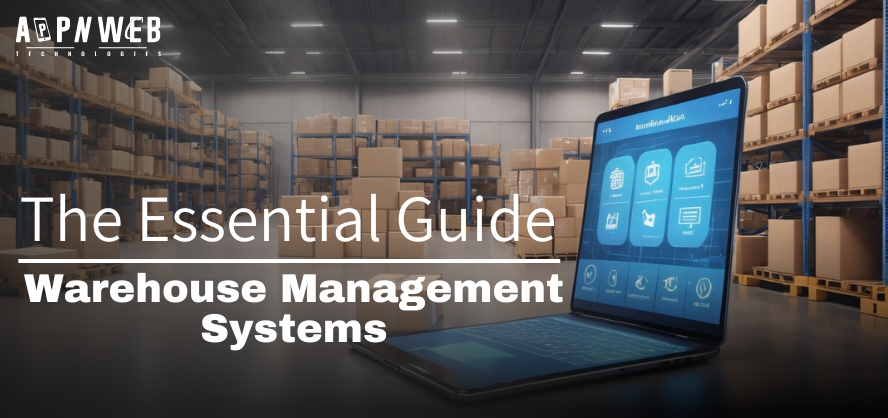
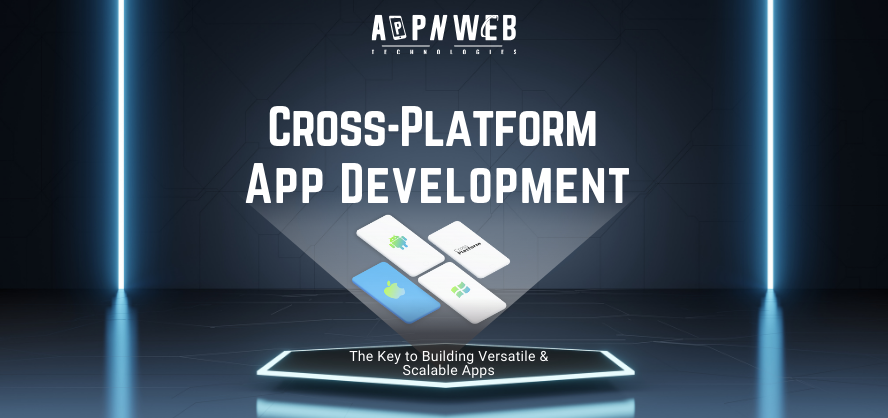
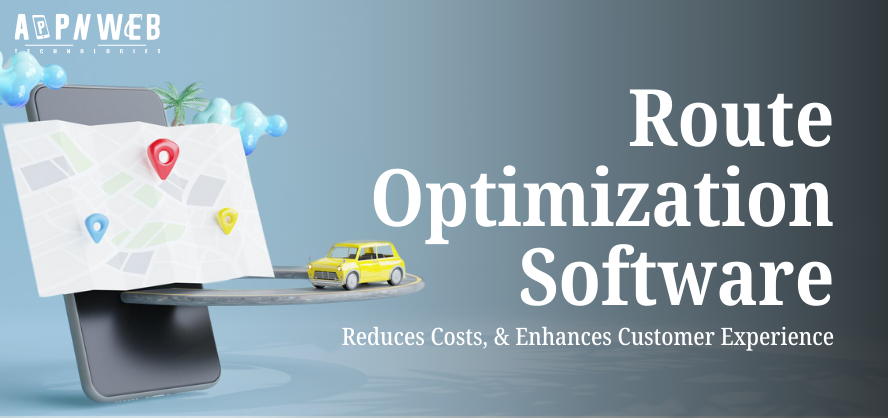



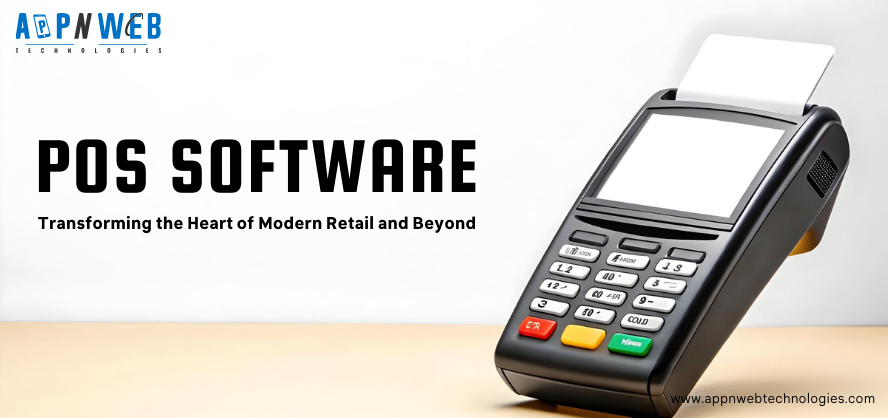
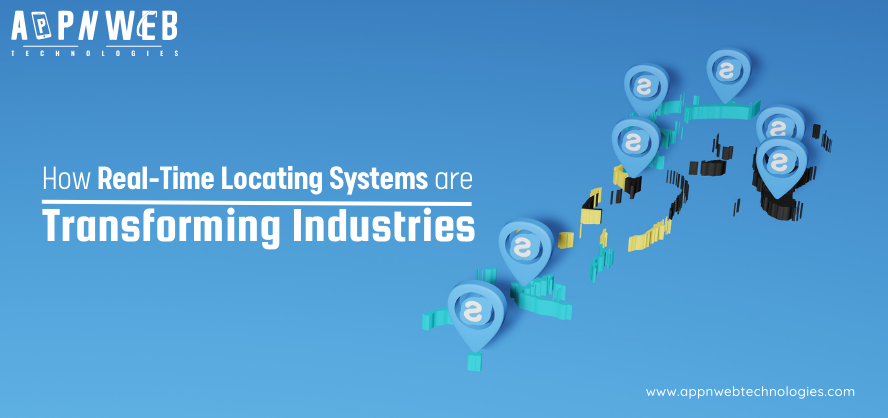

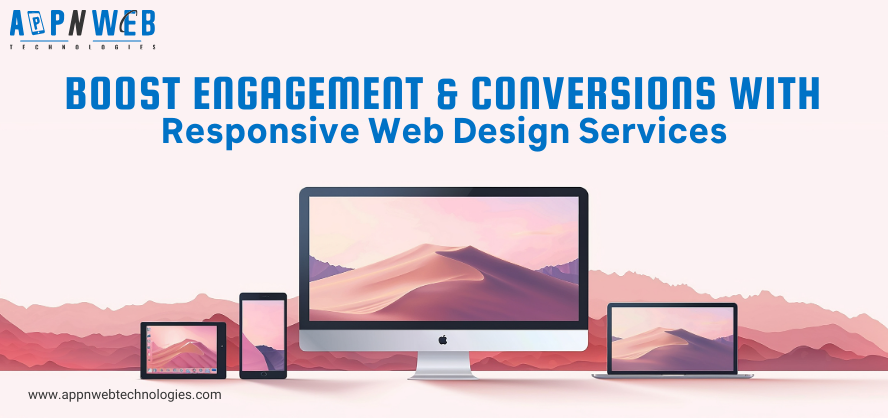



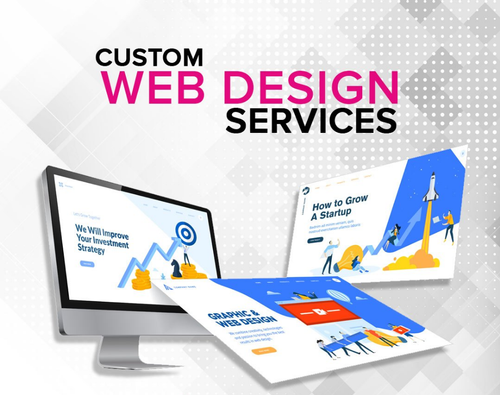


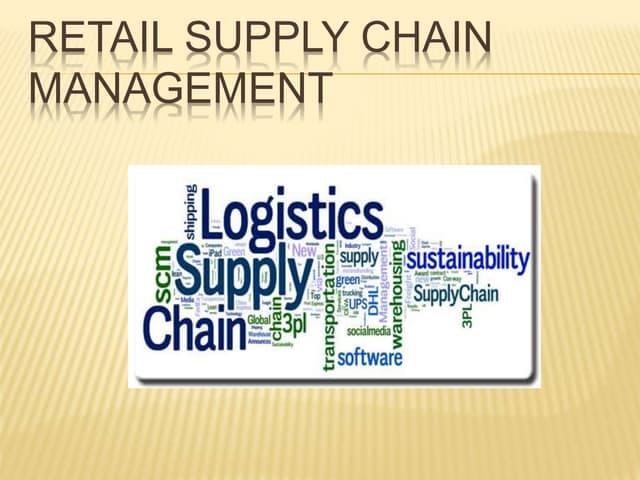










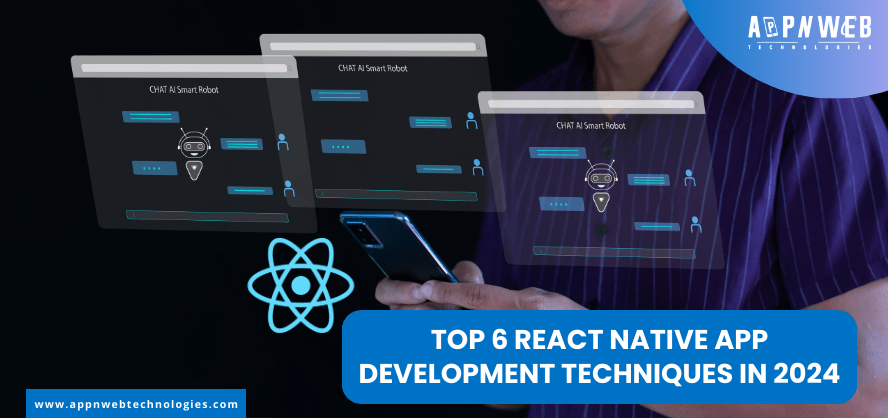






.svg)






